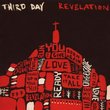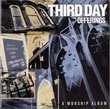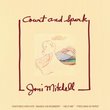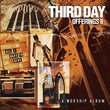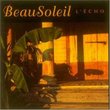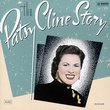| All Artists: Various Artists Title: Louisiana Cajun French Music from the Southwest Prairies Members Wishing: 0 Total Copies: 0 Label: Rounder Release Date: 8/29/2009 Genres: Blues, Folk, International Music, Special Interest, Pop, Classical Styles: Regional Blues, Cajun & Zydeco, By Decade, 1960s Number of Discs: 1 SwapaCD Credits: 1 UPCs: 011661600126, 011661600119, 011661600140 |
Search - Various Artists :: Louisiana Cajun French Music from the Southwest Prairies
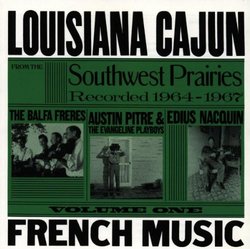 | Various Artists Louisiana Cajun French Music from the Southwest Prairies Genres: Blues, Folk, International Music, Special Interest, Pop, Classical
Field recordings made in 1965 and 1966 by Ralph Rinzler. These field trips, sponsored by the Newport Folk Foundation, produced a series of recordings which resulted in invitations to such groups as the Balfa Brothers (whos... more » |
Larger Image |
CD DetailsSynopsis
Album Description Field recordings made in 1965 and 1966 by Ralph Rinzler. These field trips, sponsored by the Newport Folk Foundation, produced a series of recordings which resulted in invitations to such groups as the Balfa Brothers (whose music was, at the time, utterly unknown outside of southwest Louisiana) to come north, and helped to kick off the widespread enthusiasm for things Cajun which has since spread worldwide. With the Balfa Brothers, Edius Nacquin, Austin Pitre & the Evangeline Playboys, and others. Similar CDsSimilarly Requested CDs
|
CD ReviewsClassic Cajun Tunes Here. David Roy | Evans, GA | 01/16/2005 (5 out of 5 stars) "Overall, this CD is great. The Balfa Brothers are in fine form and Austin Pitre's sides were cut live at a dance. My favorites, however, are the Edius Nacquin tunes at the end of the CD. He sings some old traditional songs that go way back. "La Ville de Monteau" is one that even mentions Napoleon Bonaparte, so you know how old it has to be. This one is highly recommended for those who want to get a little more in-depth into the roots of today's modern Louisiana dancehall/festival sound." Digging Deeper? Audio Obscurica | Spectrum of Sound | 06/02/2006 (5 out of 5 stars) "For those who've heard those nice polished Swallow recordings of the Balfas and Austin Pitre this album is a nice switch from the studio to the home & dance hall. Plus we get to hear some very old Cajun folk numbers as well. I'd like to emphasize that you might be better served listening to those polished recordings before coming to this volume. Find the Balfas "Play Traditional Cajun Music" and Swallow various artist compilation that might feature Austin Pitre's singles, as they are a "easier" introduction to the musicians than these field recordings. For the outsider, anyway... First up we have seven numbers from Freres' Balfa, Dewey Balfa and his brothers Rodney, Will and Harry, accompanied by Hadley Fontenot, and accordionist. Hadley's brother-in-law was Edius Naquin, by the way, featured elsewhere in this compilation. Anyway, the Balfas give us an early workout of "Danse De Mardi Gras", appearing some 10 years later on their second Swallow LP, versions of "Lacassine Special", "La Valse De Bambocheur" and "Parlez-nous a Boire". The gem of the set, is a totally new cut sung by Rodney Balfa called "Valse de Platains". The group never re-cut it and apparently no one else did, as information is scant. Haunting cut. Next is two live cuts by Austin Pitre and his band,the Evangeline Playboys. Austin Pitre was a fine musician, a fiddler and accordionist. These recordings crackle with energy, the most unusual thing is how they don't resemble Cajun music much at all. Odd enough, they sound like a pre-cursor to southern rock, the kind of thing that (the non-Cajun) Doug Kershaw was playing with on his "Alive and Pickin'" album in the 70's. Not bad, maybe a bold move for the time, but it sounds very systematic. Pitre is the one who had a hit with "Les Flammes D'Enfer" but here he sounds like its a song he picked up before the gig, didn't learn it, didn't even care about it. He also does a cover of "Valse de Bambocheur" (cleverly misspelled so that the buyer would not think they were buying duplicate tracks I guess), and musically, if it was instrumental, it would blow the doors off. The problem is, and even the most dedicated can't get past it: HIS SINGING. This man's voice could peel three coats of paint off the broadside of a barn. When people insult Cajun vocalists, they usually have Austin Pitre in mind. He was a great musician, that's what he should've remained. Until we get to... the next track! "J'ai Fini Mes Miseres", whose singing is that? Austin Pitre! Turns out, he's actually a capable vocalist. No bad! But why did he push it so much in other settings? This recording, not live as the other two, feature only voice and fiddle, which prepare us for Edius Naquin's part of the program. Newcomer Kevin Naquin, a popular musician here in Louisiana, is the great-grandson of this man. He's also got Hadley Fontenot as his great-grandfather. Mr. Naquin couldn't speak a lick of English, and his contributions here are PURE CAJUN! This is excellent stuff, and these songs rarely if ever, have appeared anywhere else. Dennis McGee once said that Cajun music came down from folk, and you can certainly hear that influence here. In Mr. Naquin's vocal and fiddle performances, so much imagery is conveyed. Obviously, he spent time hanging around some real old timers as a young man (he was born in 1900 I believe), some old enough to have known songs about Napoleon! Short, but sweet recordings, a spirited conversation between the man and his visitors, and it's over all too soon. Mr. Naquin appears to never have recorded before or after. Sad news. Great stuff here, if you are interested in Cajun field recordings, don't miss. Go look for Volume 2 also!" Austin Pitre Selections, and Volume 2 Neal F. Pomea | Colesville, Maryland | 10/23/2009 (5 out of 5 stars) "I think track 8 is mislabeled. The label has it as Valse de Bombache, but it is not at all the same song as the Balfa Brothers' Valse du Bambocheur, hence not a duplicate cut. The correct title for this song done by Pitre is Valse de Orphelin, I am pretty sure.
Austin Pitre's singing on this collection is great! I prefer this ragged but right sounding version of Les Flammes d'Enfer to the one on his Swallow 45, which is available on Austin Pitre: Early Essential Cajun Recordings. It's loose but in a good way! The scorcher, though, is Track 8! It's Pitre on fiddle with a wailing drummer, bass, and electric rhythm guitar. Interesting, too, are Pitre's remarks to the dancehall crowd asking them, in French, not to make any requests because they are recording for a man from Massachusetts and a man from New York, presumably Ralph Rinzler who recorded this and other field work following the 1964 appearance of Cajun musicians at the Newport Folk Festival. The Edius Naquin pieces are all historic, some going back to colonial days! La Ville de Monteau, for example, is about Napoleon Bonaparte being mocked by brave French soldiers garrisoned in Louisiana. This was before the Louisiana Purchase. The Valse de Platains sung by Rodney Balfa was recorded pre-World War II by Happy Fats, who was a popular source of yet another beloved Balfa tune, Les Veuves de la Coulee. The sound quality is quite good for mid-60s field recordings, and the songs are a lot of fun. Highly recommended, as is Volume 2 featuring Bois-Sec Ardoin, Canray Fontenot, Isom Fontenot, Aubrey Deville, and Adam and Cyprien Landreneau! Volume 2 begins with the black Creole French sounds of Bois-Sec Ardoin on accordion and Canray Fontenot on fiddle. Very bluesy sounding! We are lucky to have these recordings. They recorded in 1966 for Dick Spottswood's Melodeon label, Blues du Bayou, which was later re-released by Arhoolie Records as La Musique Creole. Here Canray sings Bon Soir Moreau (not Hack a 'Tit Moreau, which is a different tune) and a bluesy Jug au Plombeau about the life of a vagabond. Bois-Sec does Eunice Two Step and Quoi Faire, standards originally recorded by his cousin Amédé Ardoin in the 1930s. Isom Fontenot, a marvelous harmonica player, is featured on La Betaille dans l'Arbre, accompanied by Aubrey Deville on fiddle and Preston Manuel on guitar. Some few more of Isom's tunes can be found on Arhoolie's Folksongs of the Louisiana Acadians. Then Deville and Manuel are featured on a jaunty little tune, Le Vieux Bouef et le Vieux Chariot. The rest of the songs are by Adam Landreneau on fiddle and Cyprien Landreneau on accordion, with Dewey Balfa on triangle. You catch a little bit of talk after the first song, Rosalie, explaining that it's an old, old song Adam learned from Louis Lafleur. The emotional highlight of the album, for me, is the sorrowful tune Les Piniéres, sung high and loud by Adam. This is hard hitting stuff! Adam and Cyprien Landreneau appear on Arhoolie's Cajun Fais Do Do and Swallow's Cajun Sole, but Rinzler caught them at their strongest and best on these recordings! The set ends with a couple of more lighthearted songs, Treville n'est Pas Pecheur, and Danse de Limonade, a comical song in which the singer lets us know that he got drunk last night so today he's asking for a glass of lemonade (or a dose of cure it all tonic Kary-On!) Bois Sec and Canray played in many dancehalls but the music of the other musicians was played in old house dances and veillées and social parties. It's social music from a time when people had to entertain themselves, what Dick Spottswood calls pre-industrial, obsolete music. Well, it can hardly be obsolete if it gets across the dignity of the culture in such a compelling manner! This set of 2 albums are on my list of essentials. I would not want to be stranded on an island without them!" |

 Track Listings (14) - Disc #1
Track Listings (14) - Disc #1



